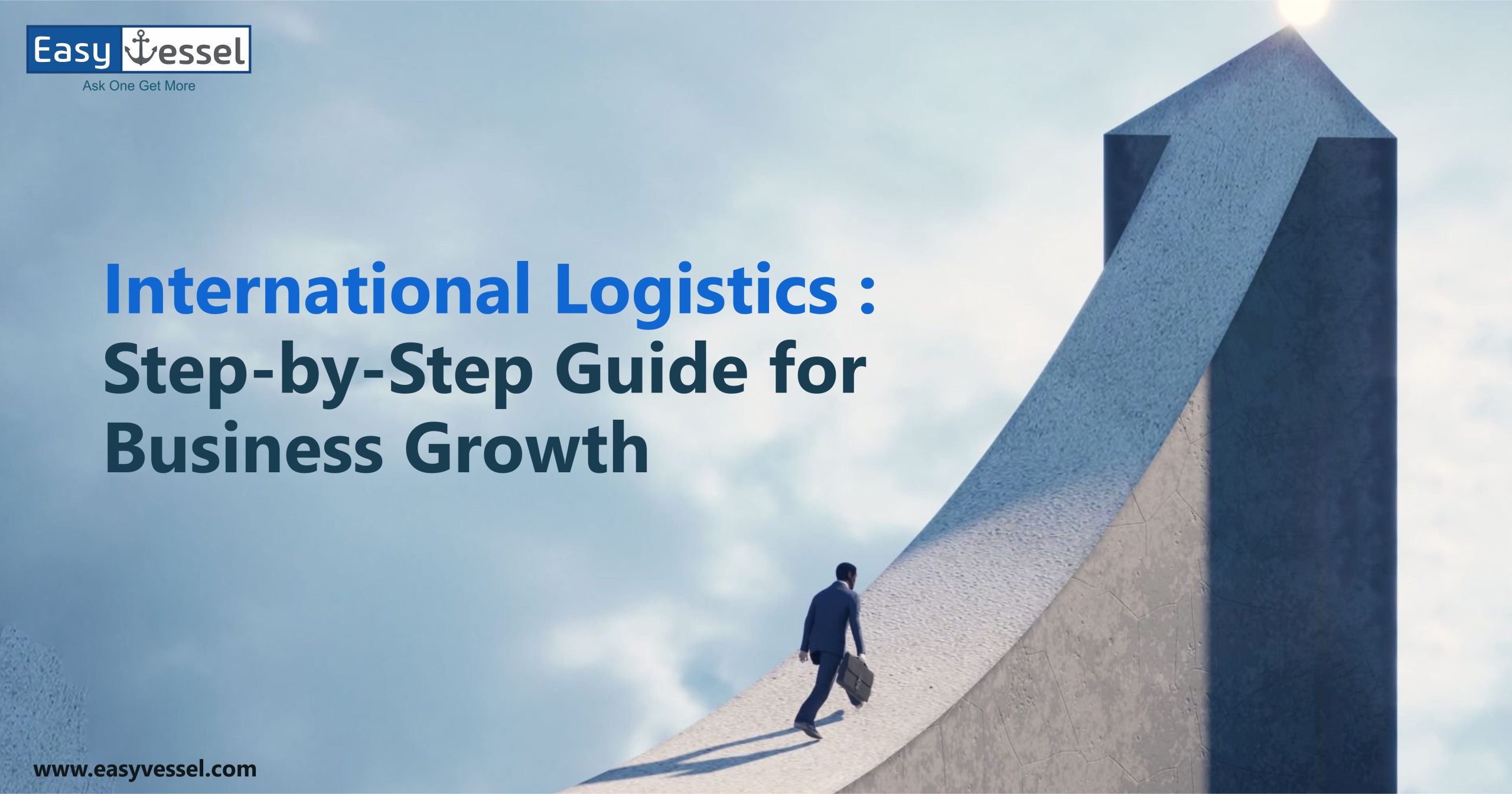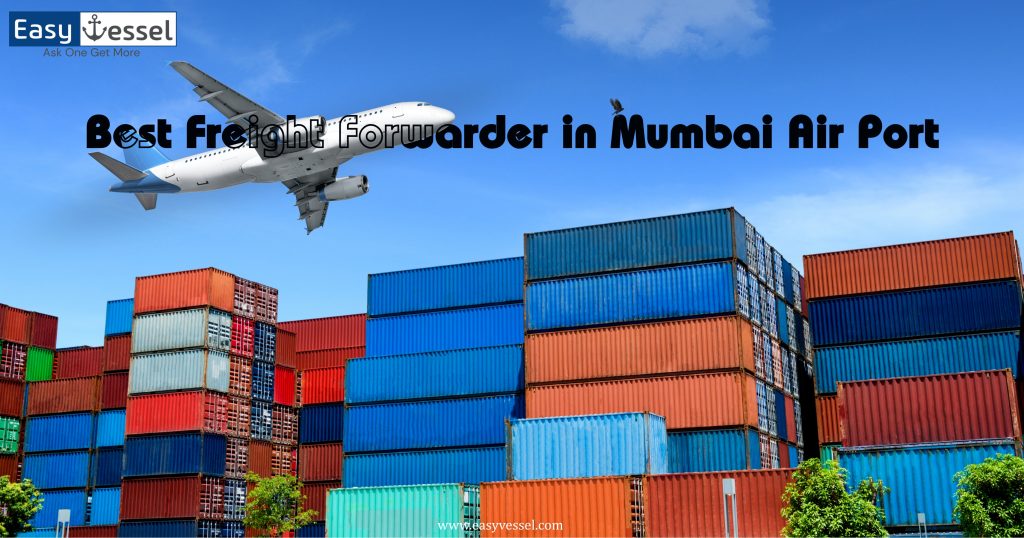Expanding your business into global markets requires a well-structured logistics strategy. International Logistics ensures smooth transportation, reduces freight charges, and improves supply chain efficiency. Whether you are a startup or an established company, understanding the core aspects of freight forwarding, modes of transportation, and global logistics is essential.
Key Factors in International Logistics & Freight Shipping
Expanding into International Logistics can be a game-changer for businesses looking to reach global markets. However, navigating the complexities of international freight shipping requires careful planning and execution. From choosing the right freight forwarders to managing freight charges, businesses must consider multiple factors to ensure a smooth and cost-effective shipping process.
1. Choosing the Right Freight Forwarders
Selecting a reliable freight forwarder is essential for efficient global trade. Freight forwarders act as intermediaries between shippers and carriers, handling documentation, customs clearance, and transportation. Businesses should evaluate a forwarder’s experience, network, and ability to manage logistics challenges. A well-connected freight forwarder ensures seamless shipping operations and minimizes delays.
2. Understanding Freight Charges and Cost Structures
Managing freight charges effectively is crucial for keeping shipping costs under control. Air, sea, and land shipping methods come with varying cost structures. Factors affecting freight charges include fuel prices, cargo weight, shipping routes, and customs duties. Businesses should compare rates, negotiate contracts, and consider consolidating shipments to reduce costs.
3. Compliance with International Trade Regulations
International Logistics involves strict regulatory requirements, including customs laws, import/export restrictions, and safety standards. Non-compliance can lead to shipment delays, fines, or confiscations. Working with experienced freight forwarders ensures that all documentation, including bills of lading, commercial invoices, and customs declarations, are handled correctly.
4. Choosing the Right Shipping Modes of Transportation
Selecting the best shipping mode depends on cost, speed, and cargo type. Air freight offers fast delivery but higher freight charges, while sea freight is more cost-effective for bulk shipments. Businesses must analyze their logistics needs and explore different modes of transportation to find the most efficient option. Working with experienced freight forwarders ensures seamless shipping and optimized cost management with the most efficient mode of transport.
5. Optimizing Supply Chain Efficiency
A well-optimized supply chain is key to success in International Logistics. To improve visibility and efficiency, businesses should integrate technology, such as real-time tracking and automated documentation. Partnering with reliable freight forwarders helps streamline operations, reduce transit times, and enhance customer satisfaction.
Advantages of Growing Your Business in International Logistics
Expanding into International Logistics is a strategic move that allows businesses to tap into global markets, increase revenue, and improve supply chain efficiency. Companies can effectively overcome logistical challenges and manage freight charges with the right freight forwarders. Below are some key benefits of expanding into International Logistics and how it can drive business growth.
1. Access to a Global Market
One of the most significant advantages of International Logistics is reaching a more extensive customer base. Businesses that export products globally can diversify their revenue streams and reduce dependency on domestic sales. By partnering with experienced freight forwarders, companies can navigate shipping complexities and deliver products efficiently to international customers.
2. Competitive Cost Savings on Freight Charges
Expanding internationally can lead to cost efficiencies in shipping. Businesses can consolidate shipments, optimize routes, and negotiate better freight charges by working with established freight forwarders. Additionally, companies can take advantage of economies of scale by shipping larger volumes, which reduces per-unit costs.
3. Strengthened Supply Chain Resilience
Relying solely on domestic suppliers and markets can make businesses vulnerable to disruptions. International Logistics enables companies to diversify suppliers and manufacturing locations, reducing risks associated with supply chain bottlenecks. Efficient freight forwarders ensure smooth transportation, allowing businesses to maintain consistent inventory levels.
4. Improved Brand Reputation and Market Expansion
A company that successfully operates in international markets gains credibility and trust. Expanding into International Logistics demonstrates reliability, allowing businesses to attract more customers and investors. Working with professional freight forwarders ensures timely deliveries, enhancing customer satisfaction and brand reputation.
5. Technological Advancements in Logistics
Digital tools, AI-driven analytics, and automated tracking systems have made International Logistics more efficient. With the support of tech-savvy freight forwarders, businesses can leverage real-time tracking, optimize shipping routes, and reduce delays. These innovations contribute to better cost management and reduced freight charges.
6. Higher Profit Margins and Business Growth
Global expansion opens new revenue streams and allows businesses to capitalize on high-demand international markets. Companies that successfully manage freight charges and partner with reliable freight forwarders can increase profitability while maintaining competitive pricing.
Tips for Business Owners on International Logistics
1. Stay Compliant with International Shipping Regulations
Each country has specific customs and trade regulations that businesses must follow. Understanding tariffs, taxes, and required documentation is essential for smooth clearance. Freight forwarders assist in managing compliance, preventing delays and additional freight charges due to errors in documentation.
2. Leverage Technology for Better Logistics Management
Technology plays a vital role in International Logistics. Implementing digital tracking systems, AI-powered analytics, and automated inventory management ensures better shipment control. Working with freight forwarders with real-time tracking and computerized customs processing can significantly improve operational efficiency.
3. Plan for Supply Chain Disruptions
International shipping can be affected by factors like weather conditions, political instability, or port congestion. Having a contingency plan, diversifying suppliers, and maintaining buffer inventory can help businesses mitigate risks in International Logistics. Experienced freight forwarders assist in managing unexpected delays and finding alternative shipping routes.
4. Consider Insurance for High-Value Shipments
To protect against potential losses, businesses should invest in cargo insurance. Insurance coverage ensures that companies are financially safeguarded in case of shipment damage or loss. Freight forwarders can help secure the right insurance policy tailored to international shipping needs.
5. Focus on Customer Satisfaction and Delivery Speed
Providing excellent customer service in international trade is vital for business success. Partnering with reliable freight forwarders ensures timely deliveries and transparent communication. Keeping customers informed about shipping status and estimated delivery times helps build trust and brand loyalty.
Read More: How to Choose an International Freight Forwarder
Collaborating with a Freight Forwarder to Manage Your International Logistics
Expanding into International Logistics requires efficient shipping, cost management, and compliance with global trade regulations. One of the best ways to streamline operations is by partnering with experienced freight forwarders. These professionals help businesses navigate complex shipping processes, reduce freight charges, and ensure seamless international trade. Working with a freight forwarder is essential for successful International Logistics.
- Simplifying International Shipping Processes
Managing International Logistics involves handling multiple shipping documents, customs clearance, and carrier coordination. Freight forwarders simplify this process by managing all logistics tasks, ensuring smooth transit of goods across borders while minimizing the risk of delays.
- Navigating Complex Customs Regulations
Each country has different customs regulations, tariffs, and duties. Mistakes in documentation can lead to costly delays and additional freight charges. Freight forwarders have expertise in international customs requirements and help businesses comply with regulations, ensuring smooth clearance and avoiding unnecessary penalties.
- Providing Access to a Global Network
Partnering with freight forwarders gives businesses access to a vast global shipping network. They have relationships with carriers, customs brokers, and warehousing providers, which allows for more flexible and reliable shipping options in International Logistics.
Conclusion
Partnering with a freight forwarder is essential for businesses looking to optimize International Logistics. They help reduce freight charges, streamline customs processes, and enhance shipping efficiency. Companies can confidently expand globally by working with experienced freight forwarders, ensuring smooth and cost-effective operations.
Reference:
Mode of Transport by Wikipedia[1].
Frequently Asked Questions
International logistics involves the efficient movement of goods across borders. The process includes:
- Planning & Documentation: Freight forwarders ensure all required customs documents and shipping permits are in place.
- Choosing the Right Modes of Transportation: Depending on cost, urgency, and cargo type, businesses choose between air, sea, rail, or road transport.
- Freight Charges & Cost Estimation: Calculating shipping costs based on weight, distance, and delivery urgency.
- Customs Clearance & Compliance: Ensuring goods meet regulatory requirements to avoid delays.
- Final Delivery & Distribution: Coordinating last-mile delivery to ensure goods reach their destination efficiently.
Freight forwarders manage the logistics of international shipments by handling customs documentation, negotiating freight charges, choosing suitable modes of transportation, and ensuring timely delivery. They act as intermediaries between shippers and carriers to simplify global trade.
Several factors influence freight charges, including shipment size, weight, distance, shipping mode (air, sea, rail, road), fuel prices, customs duties, and seasonal demand fluctuations.
The ideal mode of transportation depends on the shipment type:
- Air Freight: Fast but expensive, best for urgent or high-value goods.
- Sea Freight: Cost-effective for bulk goods with longer transit times.
- Rail Freight: Suitable for long-distance inland transport of heavy cargo.
- Road Freight: Best for regional deliveries and last-mile distribution.
To minimize freight charges, businesses can:
- Choose cost-effective modes of transportation.
- Optimize shipment packaging to reduce volume and weight.
- Consolidate shipments with freight forwarders to leverage bulk discounts.
- Plan shipments to avoid peak-season surcharges.



